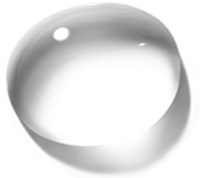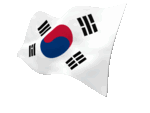Lake Vostok : A Lecture on Nature
페이지 정보
본문

Have you ever heard of Lake Vostok? Probably not, because it is not on the ordinary map of the world, nor is it on the surface of the earth. It is under the earth. To be more exact and specific, it lies two miles (3.2 km) below the solid ice of the antarctica. I myself had not heard of it until I read an article written about it in the recent issue of the weekly news magazine, Time (March 12, 2012).
Oh yeah? So what? What are you going to talk about?
Well, wait. What's the hurry? According to the article, a month ago, on February 5 this year, a team of Russian scientists working in Antarctica made a geological history. Working on and off for nearly a decade in that inhospitable climate, they drilled down through the ice and finally reached their goal: Vostok Lake, a subglacial lake, which had been sealed off from light and air for up to 34 million years, let alone from human sight and touch.
Oh, interesting! So what? Get to the point!
Well, wait. Don't rush me. The scientists engaged in the drilling work seem to expect that this particular lake could contain forms of microbes unknown to us hitherto, and because the water's temperature and chemical components resemble the conditions found on Europa, one of Jupiter's moons, the study of this lake may help us understand not only how and what kind of life could exist on other planets, but also even possibly how life began.
Mm, it sounds good and interesting! But you are not a student of science, are you? Your major is English literature, not geology nor microbiology nor astrophysics. You are just a literary man. You don't know nothing about science, do you? And, we have already heard and read somewhere about the similar stories and about the origin of life, but they all turned out to be only plausible theories and wishful hypotheses! How about finishing your presumptuous lecture now!
I will. But wait! Don't be so impatient with me. Well, you are right. I am not equipped with enough scientific knowledge to fully understand the benefits or consequences this discovery and study of the lake would bring about for mankind hereafter, but I would like to say something about the symbolic meaning and value of the lake newly discovered - that is, a literary or a humanistic understanding or interpretation of this scientific success. Let me, therefore, continue my lecture a little bit longer on the subject, will you?
You really are a pathetically shameless and tenacious man indeed. What a cheek! You never give up. You are simply irresistible. OK. Go on. Just as you wish.
Well, thank you. Arriving at the Lake Vostok means that we have attained a new scientific success, but at the same time that we have lost one of the few truly pristine places still remaining on earth. In other words, we have just invaded one more sacred and mysterious part of nature with our hands and tools in the name of science. Like the Sleeping Beauty in one of the Grimm Brothers' fairy tales, the Vostok Lake had been sleeping in peace and silence for eons within ice, but no more. We have just started tinkering with it. I feel rather sorry for that.
Once there were many places on earth where we could not put our hands and feet on, like the Vostok Lake. They were placed too far, too high, or too deep from us, but we have reached and explored all of these forbidden places one by one. Our advanced equipments and technology have enabled us to go anywhere we wish to go, even to the moon. Now little is left on earth untouched or untrodden by humans. Human presence is so prevailing and pervasive everywhere that there seems to be no room left for nature to remain as the poets in the past knew and celebrated it.
At the beginning there was nature. All was nature and we humans were only a very tiny and insignificant part of it. Man lived depending entirely upon its charity, benevolence, and benefaction. More often than not, nature was cruel, fickle, and malevolent to man. It threatened us with deaths, famines, floods, earthquakes, epidemic diseases, droughts. We were no adversary to it. We were afraid of it and even worshipped it. We were just an abject and fragile subjects at the mercy of the mighty lord of nature.
But now the tables are turned. We humans have become in no time too powerful and influential over nature. We can do almost anything to, with and against nature, if we just wish to do. We can alter the very nature of our planet. We can tame the wild, readjust the coastline, fill the sea, change climate, drill into rock and ice. We can wipe out any species on earth including our own. We can not only destroy it but also rebuild it, as we see in the case of ozone layer in the sky over Antarctica. We are the very lord over nature.
It is no longer us against nature or nature against us. The competition between the two seems to be over with the victory on man for the time being. We will decide what nature is and what it will be hereafter. What is certain is there is no getting back to the Garden of Eden, although there lurks always the possibility of its coming back with a vengeance. The winner should not be overjoyed. We are entirely responsible for all the natural disasters as well as the benefits hereafter. We are to blame, not nature. That's the price of victory we should pay.
(April 2, 2012)
Oh yeah? So what? What are you going to talk about?
Well, wait. What's the hurry? According to the article, a month ago, on February 5 this year, a team of Russian scientists working in Antarctica made a geological history. Working on and off for nearly a decade in that inhospitable climate, they drilled down through the ice and finally reached their goal: Vostok Lake, a subglacial lake, which had been sealed off from light and air for up to 34 million years, let alone from human sight and touch.
Oh, interesting! So what? Get to the point!
Well, wait. Don't rush me. The scientists engaged in the drilling work seem to expect that this particular lake could contain forms of microbes unknown to us hitherto, and because the water's temperature and chemical components resemble the conditions found on Europa, one of Jupiter's moons, the study of this lake may help us understand not only how and what kind of life could exist on other planets, but also even possibly how life began.
Mm, it sounds good and interesting! But you are not a student of science, are you? Your major is English literature, not geology nor microbiology nor astrophysics. You are just a literary man. You don't know nothing about science, do you? And, we have already heard and read somewhere about the similar stories and about the origin of life, but they all turned out to be only plausible theories and wishful hypotheses! How about finishing your presumptuous lecture now!
I will. But wait! Don't be so impatient with me. Well, you are right. I am not equipped with enough scientific knowledge to fully understand the benefits or consequences this discovery and study of the lake would bring about for mankind hereafter, but I would like to say something about the symbolic meaning and value of the lake newly discovered - that is, a literary or a humanistic understanding or interpretation of this scientific success. Let me, therefore, continue my lecture a little bit longer on the subject, will you?
You really are a pathetically shameless and tenacious man indeed. What a cheek! You never give up. You are simply irresistible. OK. Go on. Just as you wish.
Well, thank you. Arriving at the Lake Vostok means that we have attained a new scientific success, but at the same time that we have lost one of the few truly pristine places still remaining on earth. In other words, we have just invaded one more sacred and mysterious part of nature with our hands and tools in the name of science. Like the Sleeping Beauty in one of the Grimm Brothers' fairy tales, the Vostok Lake had been sleeping in peace and silence for eons within ice, but no more. We have just started tinkering with it. I feel rather sorry for that.
Once there were many places on earth where we could not put our hands and feet on, like the Vostok Lake. They were placed too far, too high, or too deep from us, but we have reached and explored all of these forbidden places one by one. Our advanced equipments and technology have enabled us to go anywhere we wish to go, even to the moon. Now little is left on earth untouched or untrodden by humans. Human presence is so prevailing and pervasive everywhere that there seems to be no room left for nature to remain as the poets in the past knew and celebrated it.
At the beginning there was nature. All was nature and we humans were only a very tiny and insignificant part of it. Man lived depending entirely upon its charity, benevolence, and benefaction. More often than not, nature was cruel, fickle, and malevolent to man. It threatened us with deaths, famines, floods, earthquakes, epidemic diseases, droughts. We were no adversary to it. We were afraid of it and even worshipped it. We were just an abject and fragile subjects at the mercy of the mighty lord of nature.
But now the tables are turned. We humans have become in no time too powerful and influential over nature. We can do almost anything to, with and against nature, if we just wish to do. We can alter the very nature of our planet. We can tame the wild, readjust the coastline, fill the sea, change climate, drill into rock and ice. We can wipe out any species on earth including our own. We can not only destroy it but also rebuild it, as we see in the case of ozone layer in the sky over Antarctica. We are the very lord over nature.
It is no longer us against nature or nature against us. The competition between the two seems to be over with the victory on man for the time being. We will decide what nature is and what it will be hereafter. What is certain is there is no getting back to the Garden of Eden, although there lurks always the possibility of its coming back with a vengeance. The winner should not be overjoyed. We are entirely responsible for all the natural disasters as well as the benefits hereafter. We are to blame, not nature. That's the price of victory we should pay.
(April 2, 2012)
- 이전글The Big Issue 21.01.13
- 다음글Acceptance 21.01.13
댓글목록
등록된 댓글이 없습니다.








